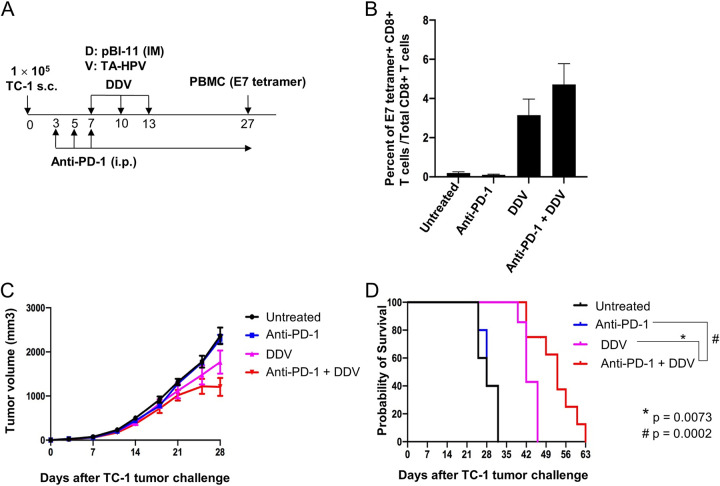FIG 7.
Characterization of the HPV antigen-specific immune response and antitumor effects in a TC-1 tumor-bearing mouse treated with DDV with or without anti-PD-1. Six- to eight-week-old female C57BL/6 mice (5 to 8 mice/group) were injected with 2 × 105 of TC-1 cells subcutaneously on day 0. On day 3, the mice were divided into 4 groups. The first group was used as the untreated control. The second group was injected with purified anti-mouse PD-1 monoclonal antibody (MAb; clone 29F.1A12, 200 μg/mouse) via intraperitoneal injection. The treatment was repeated every other day. The third group was vaccinated with pBI-11 DNA (25 μg/50 μl/mouse) through i.m. injection and boosted once 3 days later. The mice were further boosted with TA-HPV vaccinia virus 3 days later through skin scarification. The fourth group was treated with both anti-mouse PD-1 MAb and pBI-11 DNA vaccine prime followed by TA-HPV vaccinia virus boost as described in Materials and Methods. (A) Schema of the experiment. (B) Detection of HPV16 E7-specific CD8+ T cells in peripheral blood using HPV16 E7 tetramer staining. (C) Summary of the TC-1 tumor volumes in the mice. (D) Kaplan-Meier analysis of the survival of TC-1 tumor-bearing mice.

